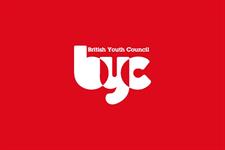The British Youth Council’s 17 employees have been made redundant as the charity enters liquidation.
BYC, a 75-year-old youth voice charity, which announced plans to close in March, has appointed liquidators and made its team of 17 staff members redundant.
The charity appointed James Sleight and Peter Hart of PKF Littlejohn Advisory as its joint liquidators after a creditors’ meeting on 26 April.
A statement from the liquidators said that BYC’s demise was “accelerated” by the collapse of The Body Shop in February and the “decision by other funding partners not to renew their funding because of the challenging economic environment”.
The charity’s latest available accounts showed a total income of £825,671 in the financial year to the end of March 2022 – £25,880 of which was contributed by The Body Shop.
A large portion of the charity’s 2021/22 income came from the Department for Culture, Media & Sport, which totalled £274,950 in statutory funding.
The liquidators said the charity’s cashflow challenges “began to crystalise” at the end of last year, when an expected £36,000 from The Body Shop failed to materialise and the board “recognised that income generation was not going to recover before the year end”.
They added that BYC’s trustees had been “trying to address funding issues for some time”. Sleight said: “Unfortunately, and despite reasonable prospects to return the charity to a solvent position, when further support from major funders failed to materialise, the decision was taken to place the charity into a creditor voluntary liquidation.”
A response from the charities minister Stuart Andrew to an open letter from members of the UK Youth Parliament – a programme operated by BYC – recently revealed that the DCMS refused to provide emergency funding to the charity after being notified of the charity’s financial troubles in February.
The charity’s liquidators said BYC would be wound up after the creditors’ meeting. The charity’s outstanding debts were “comparatively low in value and two creditors account for 30 per cent of the total debt”, they said.
A lack of tangible assets meant creditors were unlikely to see a dividend, the liquidators said, but there was “potential value in the sale of intangible assets including the brand, which may also enable some form of the charity’s valuable work to continue in the future”.
The liquidators said they were exploring all these options and were also assisting BYC’s former employees with claims for government compensation.
